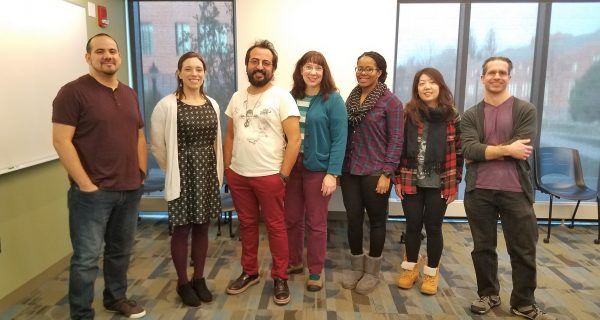Welcome to Intergroup Relations at UConn!
We focus on theory and research concerning power, morality, inter-group emotions, social dominance, ideology, group status, inequality, identity, international relations, and political psychology.
News
Pratto, F On power and empowerment.http://dx.doi.org/0.1111/bjso.12135
 Loading...
Loading...
New paper on what justifying one’s system does and does not do
Many of our recent studies are demonstrating that the same “political psychologies” are not the same across political contexts. Here is a new paper showing the same pattern. Its in press at PSPB.
A Comparison of Social Dominance Theory and System Justification Theory:
The Role of Social Status in 19 Nations
Salvador Vargas-Salfate
Dario Paez
James H. Liu
Felicia Pratto
Homero Gil de Zúñiga
Abstract
This study tests specific competing hypotheses from social dominance theory/realistic conflict theory versus system justification theory about the role of social status. In particular, it examines whether system justification belief and effects are stronger among people with low socio-economic status, and in less social developed and unequal nations than among better-off people and countries. A cross-national survey was carried out in 19 nations from the Americas, Western and Eastern Europe, Asia and Oceania using representative online samples (N=14,936; 50.15% women; Mage=41.61). At the individual level, System Justification beliefs, Right Wing Authoritarianism, Social Dominance Orientation, national identification, sociopolitical conservatism, sex, age, and social status were measured. At the national level, the Human Development Index and the Gini Index were used. Multilevel analyses performed indicated that results fit better with the social dominance/realistic conflict theory approach, as system justification was higher in high status and developed nations; further, associations between legitimizing ideologies and system justification were stronger among high status people.
New publication about social dominance in the workplace
Aiello, A., Tesi, A., Pierro, A., Pratto, F. (2017). Social dominance and interpersonal power: Asymmetrical relationships within Hierarchy-enhancing and Hierarchy-attenuating work environments. Journal of Applied Social Psychology. ( http://onlinelibrary.wiley.com/doi/10.1111/jasp.12488/full )
SDO & environmental preservation
Our collaborator, Davide Morselli of the University of Lausanne, Switzerland, published a new article linking social dominance orientation with disregard for the environment in The Guardian.
Recent News
- Welcome to our newest lab members Elle Allen, Joel Devonshire, Leah Pound and Angela Wang.
- Otto Klineberg Intercultural and International Relations Award from The Society for the Psychological Study of Social Issues awarded to paper: Andrew L. Stewart, Felicia Pratto, Fouad Bou Zeineddine, Joseph Sweetman, Véronique Eicher, Laurent Licata, Davide Morselli, Rim Saab, Antonio Aiello, Xenia Chryssochoou, Aleksandra Cichocka, Atilla Cidam, Rob Foels, Benjamin Giguère, Li Liu, Francesca Prati, and Jacquelien van Stekelenburg (2015). International support for the Arab uprisings: Understanding sympathetic collective action using theories of social dominance and social identity. Group Processes and Intergroup Relations. doi: 10.1177/1368430214558310. August, 2015.
- Several members of the intergroup lab contribute to a special thematic section on “societal change” in the Journal of Social and Political Psychology, 1 (1)
- Former lab member I-Ching Lee and faculty members Felicia Pratto and Blair Johnson are co-winners of the Gordon Allport Intergroup Relations Prize from SPSSI for their paper, “Intergroup Consensus/Disagreement in Support of Group-Based Hierarchy: An Examination of Socio-Structural and Psycho-Cultural Factors“!


